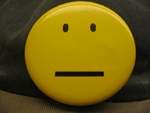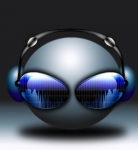I still don't "get" the screening coming right after a titration. After a night of monitored PAP, yeah. But not titration.5aces wrote:Today I met with the Respirologist at the sleep clinic to review the MWT results.
Not the "fait accompli" I had anticipated.
Another doctor had interpreted the results from study and had not signed off on the assessment,pending the respirologists review.
Indeed I did fall asleep for 2 minutes during the first session,8 seconds for the second session and only brief seconds for the third and fourth tests.
Both doctors must reconvene to interpret these results,the interpreting physician felt the small periods of sleep were of no great consequence,whereas the respirologist wanted further analysis.
Not unexpected though,as I had a busy night of re-titration prior to the daytime screening.
The pressure was varied from 8 to 13 cmh20,with 10 being the optimum for preventing AI's.
Oddly,(and the subject of further scrutiny)were the numbers that showed a pressure of 13 afforded the most REM sleep time,also the produced the highest AHI level.
The plan for now is:
1) both doctors will confer on the sleep study numbers and assess.
2)a ResMed Autopap is to be provided for home use,to capture 7 days detailed data at an 8 - 13 cmh20 variable setting.
3)follow up in three weeks to further assess and advise.
On a side note I had a few kidney stone attacks last week,they were just plain off the hook,my first and hopefully last!
Likely from inactivity following the sinus surgery in April,what can you do if you've spent too much time in bed?
I see the importance of titrating for supine REM and all, but I wonder how often a lower pressure might have allowed just as much REM just as well. And I wonder if sometimes REM is going to have a jump in AHI regardless.
I had a kidney stone a few months ago. Also my first. Hopefully my last. I think PAP therapy changes the way our bodies handle fluids to the point that people on PAP should drink beyond their thirst for a while until the body gets used to everything. I now understand that it isn't so much a matter of how much water I drink, but the amount I urinate and how clear it is.
The stone changed my pain threshold, though. I am now slightly less wimpy. I had a medical test a few weeks later that required a peripheral IV line, and it took the nurse 4 attempts at different locations to get it right. She seemed very embarrassed and distrubed by the "torture" she was submitting me to. I told her not to worry--I didn't really mind it at all. I used to find that kind of thing very painful, but I barely felt it in comparison to the kidney stone.
Thanks for keeping us updated, 5aces.



















